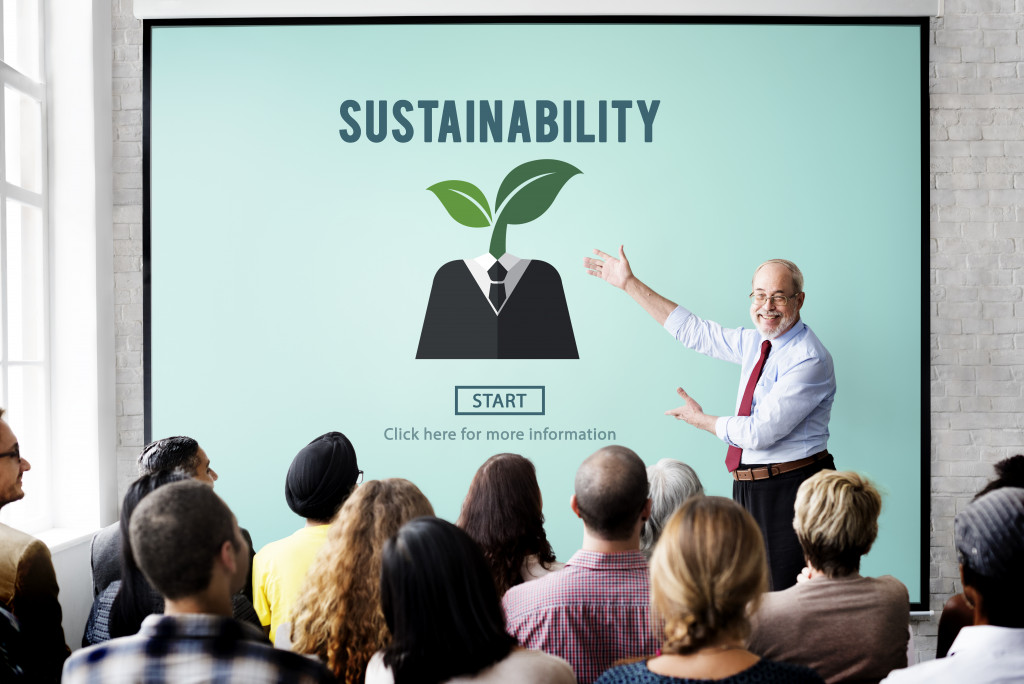If you ever heard of Greta Thunberg, the eco-activist who shook the world with her ideas about protecting the planet, then you know that being eco-friendly has become the rage these days. Everywhere, you see the efforts from edible drinking straws to recyclable packaging. Consumers are changing their shopping habits, and manufacturers are trying to make environmental efforts.
More millennials and Gen Zs now gravitate to sustainability and are more vocal and passionate about their cause. These generations prove to be environmentally conscious, being born in the digital age. With global news and means of involvement at the tip of their fingers, these generations lead the world toward eco-conscious buying, admittedly only buying from manufacturers that prove their eco-friendly credentials.
Then here comes the pandemic and lockdowns to make so many people realize their overspending and impact on the environment. All those times of lockdowns led consumers to pay closer attention to the kind of products they purchase, particularly their environmental impact.
However, the sustainability trend isn’t just consumer-led. China has recently disclosed its issued draft of environmental tax law. The US is keeping up as well with its plans to reduce carbon dioxide emissions. In December 2014, European Union had long since required its companies to report their environmental issues by 2016.
With all these, it’s no wonder that sustainability sells. Whether you’re a UV light air purification business or in the clothing industry, going eco-friendly is a wise option. Manufacturing products doesn’t have to mean sacrificing the environment anymore. It’s now all about producing and consuming products without causing the environment much harm.
What is it becoming earth-friendly in the manufacturing industry?
Businesses are making an effort to make their products genuinely earth-friendly. It’s by reducing their carbon footprints while remembering both human and environmental safety. This means the transition to producing goods that do not wear out the ecosystem using sustainable ingredients.
They grow their materials or ingredients without the use of herbicides or pesticides. Recycling is also the key. Waste products from wood, plastic, glass, or metal are reclaimed and made into new products. As much as possible, biodegradable products are encouraged as they lessen the pollution by decomposing naturally.
Be careful of “greenwashing”

Some businesses greenwash, which keeps up with the eco-friendly trend, labeling their products like it, but then not living up to it. The purpose is to appeal to environmentally conscious buyers not just by the label but also in other forms of marketing.
Be careful about greenwashing as consumers are more informed nowadays. To be believed as a truly eco-friendly business, one has to gain approval from the US Environmental Protection Agency, Energy Star program, and other groups. Everything still boils down to gaining and maintaining customer loyalty. To maintain your truly eco-conscious customers, you will have to really take your word of green for it.
How can your company take steps toward sustainability?
There are many ways for your company to become sustainable. Always ask first: Do these actions minimize environmental impact? If so, go for it. Here are other ways you can be more earth-friendly:
Switch to remote work
It turns out, the pandemic somehow did a good job to the environment by forcing most companies to send their employees working at home. This means employees reduce their time for commuting. The fewer the cars are on the road, the less carbon dioxide is released into the air. Fewer people in the office means the company can save more too from lighting to heating expenses.
Implement the 3 Rs
Make sure to reduce any use of products as you can, so instead of using disposable utensils, opt for ceramic or real glass alternatives. Reuse too, such as using the two sides of printer paper. Then lastly, recycle, which is made easier by segregated trash bins.
Do a compost
Even large-city companies can go for composting if they really aim to. Dumping organic materials is way too different from composting. For example, you dump banana peels. In an open space, they will only decay slowly and even release off-gases methane. But with composting, banana peels and any other organic materials quickly decay. This makes the surrounding soils healthier, turning the greens in the parks and gardens better.
Consider sustainable packaging
One of the best ways to appeal to them is the packaging with more environmentally friendly consumers, especially if you sell and ship products. These consumers tend to buy from retailers that offer affordable yet compostable packaging.
Businesses grow by adapting to everything new. By shifting yours to the current consumer preference, you might be able to gain more customers and keep their loyalty to your brand. A label is one thing; doing it is another. Stick to your newfound eco-friendly principles, and your consumers will see through that.




